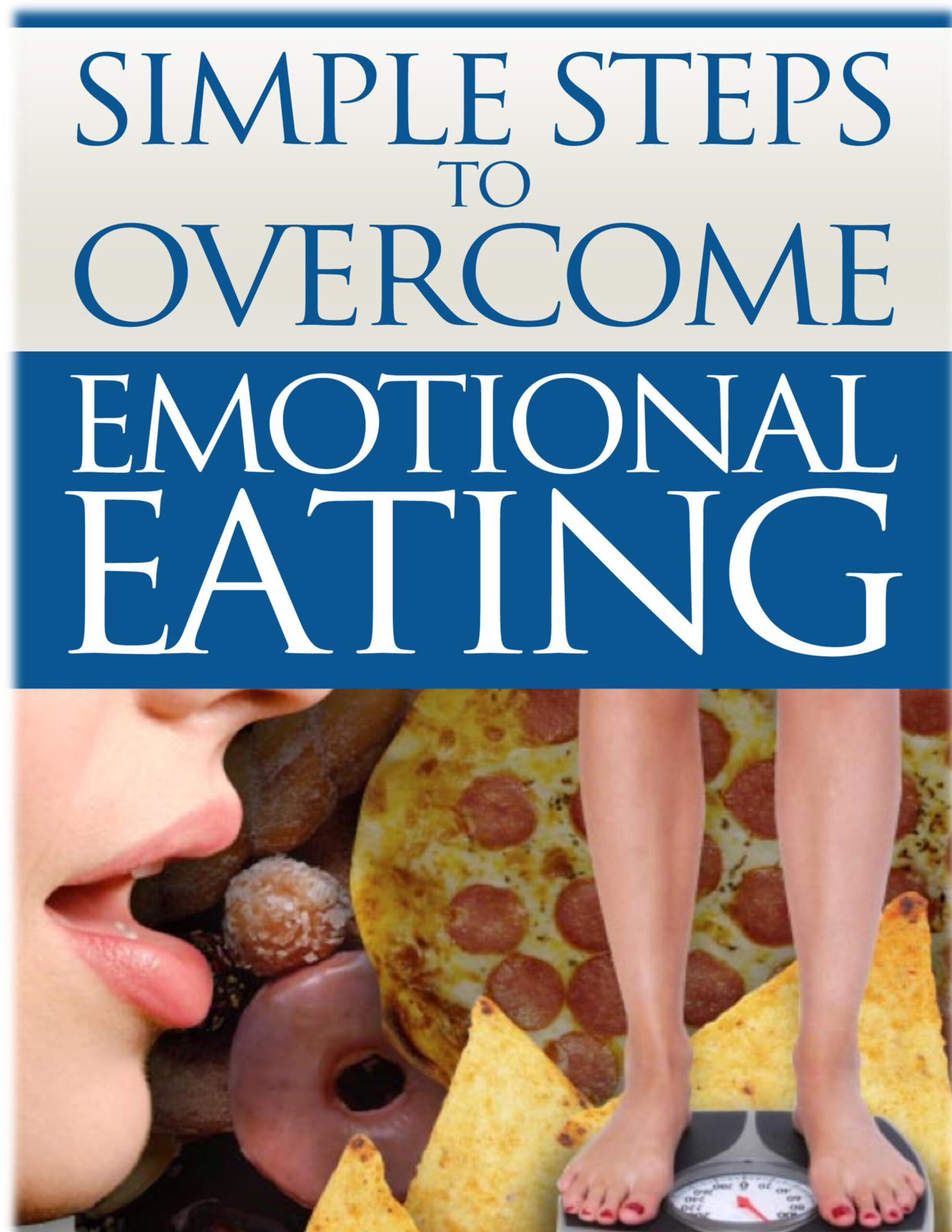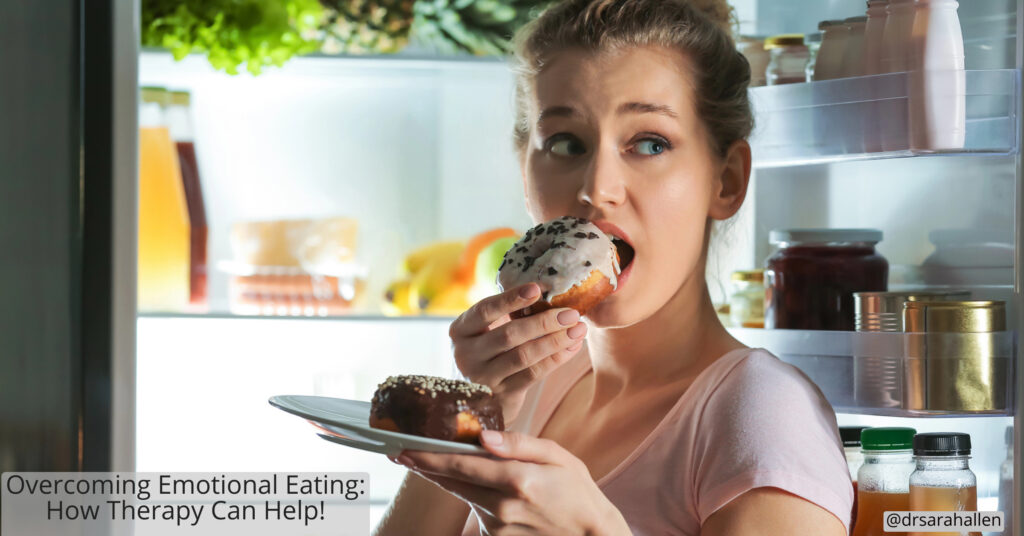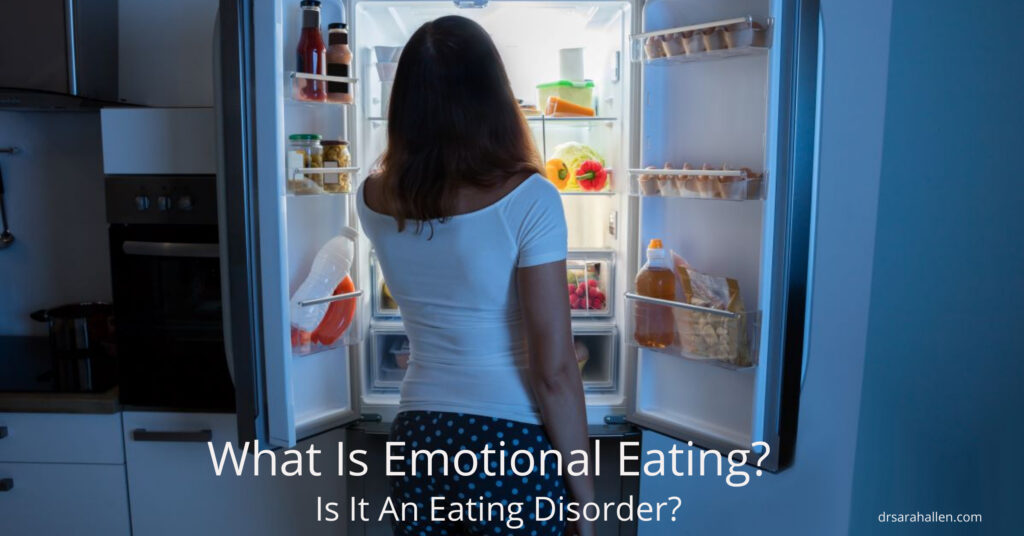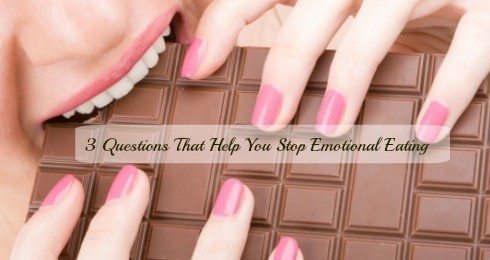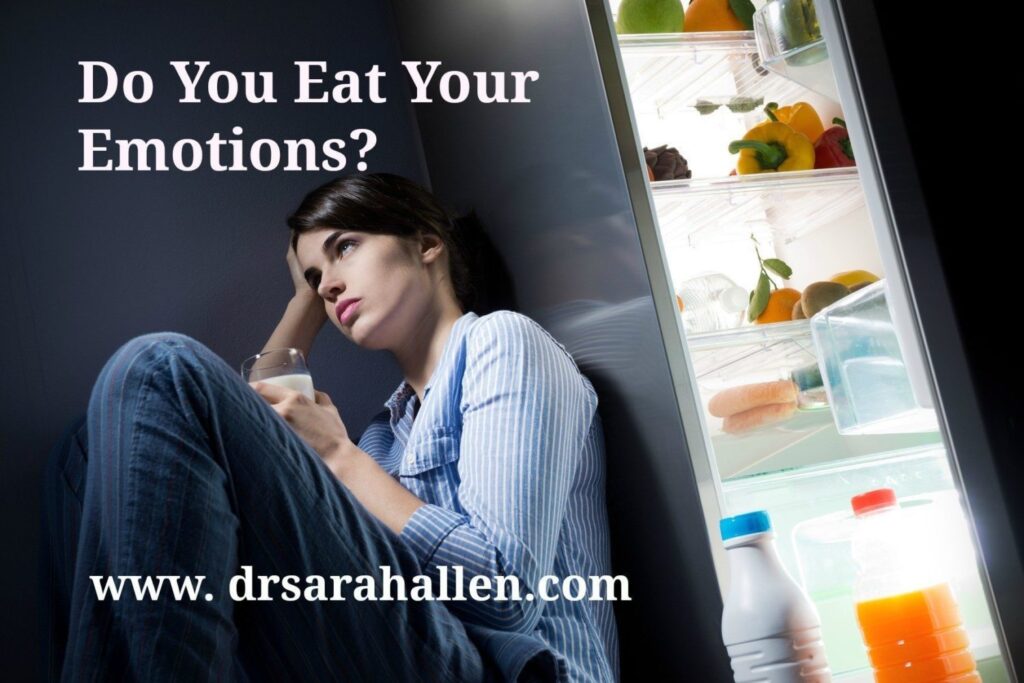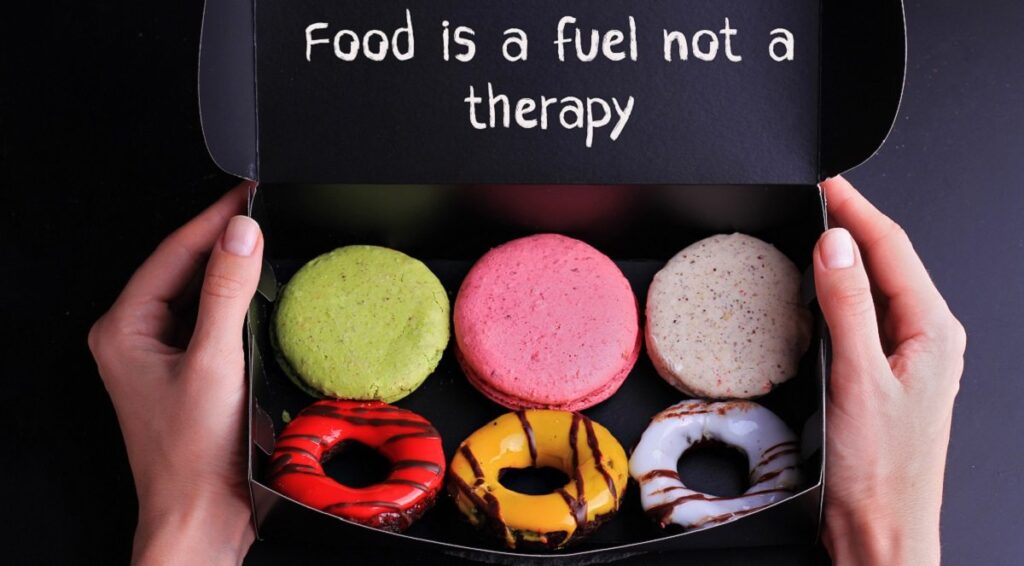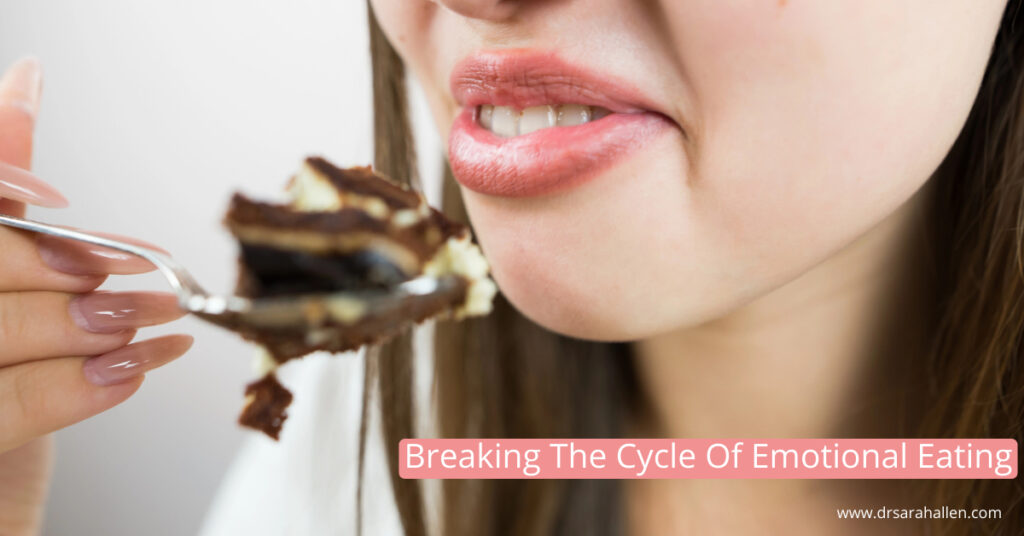
Emotional eating is when you eat in response to your feelings rather than hunger. You may turn to food for comfort when feeling stressed, anxious, or even bored. This can create a cycle where eating becomes a way to cope with emotions rather than addressing the root cause of your stress.
I’ve learned that understanding the “why” behind emotional eating is crucial. It’s often not about willpower but rather unaddressed emotions.
Understanding Emotional Eating
Emotional eating occurs when you use food to soothe your emotions rather than to satisfy physical hunger. This type of eating can become a way to suppress or cope with feelings such as stress, boredom, or loneliness. Emotional eating often involves craving comfort foods, which are typically high in sugar, fat, or both. While it might provide temporary relief, it does not address the root cause of your emotions.
I’ve seen that the problem with emotional eating is that it can create a harmful cycle. You may eat to feel better, but the relief is short-lived. This can lead to feelings of guilt or shame, which then trigger more emotional eating. Over time, this cycle can lead to weight gain, low self-esteem, and even more stress.
Understanding that emotional eating is more about your emotions than your appetite is crucial. Emotional hunger comes on suddenly, feels urgent, and is often linked to specific foods. In contrast, physical hunger comes on gradually and can be satisfied with a variety of foods. Recognizing the difference between these two types of hunger can help you make better food choices and break the cycle of emotional eating.
Common Causes of Emotional Eating
Many of my clients have shared that stress is one of their most pervasive triggers. When stressed, the body’s cortisol levels increase, which can drive up appetite and make high-calorie comfort foods more appealing. It’s fascinating yet challenging to see how our bodies naturally respond to stress with this survival mechanism, leading to modern-day unhealthy eating habits.
Emotional discomfort, including feelings of loneliness, sadness, or boredom, is another significant cause. My clients often turn to food to fill an emotional void or to provide a temporary distraction from their feelings. This behavior may begin in childhood or adolescence and carry into adulthood, becoming deeply ingrained in how one handles emotions.
Learned behaviors and habits also contribute significantly to emotional eating. Many of my clients learn to associate certain activities—like watching TV or celebrating accomplishments—with eating specific foods. These behaviors become automatic over time and can be particularly challenging to change because they are deeply embedded in everyday routines.
Recognizing the Symptoms of Emotional Eating
Identifying the symptoms of emotional eating is critical in taking control of one’s eating habits. One of the most telling signs is eating when not physically hungry. Many clients describe instances where hunger seems to come on suddenly and urgently, demanding immediate satisfaction with specific comfort foods, such as sweets or fast-food.
On the other hand, physical hunger develops gradually and can be satisfied with a variety of healthy options. Learning to distinguish between these two types of hunger is a vital skill I work on with my clients. Additionally, symptoms often include eating mindlessly or excessively, leading to a cycle of overeating followed by guilt or shame.
These feelings of guilt and shame are strong indicators of emotional eating. Many individuals feel trapped in a pattern where eating is used to soothe negative emotions, only to result in more negative feelings once the immediate relief has passed. Recognizing these symptoms helps in breaking free from this cycle and developing healthier eating patterns.
Strategies to Break the Cycle of Emotional Eating
Breaking the cycle of emotional eating involves developing healthier ways to cope with emotions. Here are some effective strategies to consider:
1. Find Alternatives:
– Engage in activities that make you feel good and distract you from the urge to eat, such as going for a walk, reading a book, or talking to a friend.
– Identify hobbies and interests that can provide a healthy outlet for your emotions.
2. Manage Stress:
– Learn stress management techniques, such as deep breathing, meditation, or yoga.
– Develop a regular exercise routine to help release stress and improve your mood.
3. Keep a Food Diary:
– Track what you eat, when you eat, and how you feel at the time. This can help you identify patterns and triggers.
– Review your diary regularly to understand your emotional eating habits better and make necessary adjustments.
4. Seek Support:
– Don’t hesitate to talk about your struggles with a trusted friend or family member.
– Professional help can provide you with tailored strategies to manage emotional eating.
Implementing these strategies can help you build a healthier relationship with food and address the emotional triggers behind your eating habits.
Break the Cycle of Stress and Food with Professional Help
Emotional eating is a multifaceted issue rooted in using food to manage feelings rather than to satisfy physical hunger. In my therapy practice, I’ve seen how understanding emotional eating, recognizing its causes, and identifying symptoms are crucial steps toward breaking the cycle.
Building a healthier relationship with food requires commitment and patience. By becoming more mindful of eating habits, finding alternative ways to manage stress, and keeping track of emotional triggers, my clients can start taking control of emotional eating patterns. It’s not about perfection or quick fixes; it’s about making small, consistent changes that lead to a more functional relationship with food.
For personalized emotional eating treatment, contact me, Dr. Sarah Allen. I see clients in my office in Northbrook, a North Shore Chicago suburb, or virtually across IL, FL and the UK.

I specialize in empowering you to have the relationship with food that you want, rather than weight and food issues controlling you. If you have any questions, or would like to set up an appointment to work with me, please contact me at 847 791-7722 or on the form below.
If you would like to read more about me and my areas of specialty, please visit Dr. Sarah Allen Bio. Dr. Allen’s professional license only allows her to work with clients who live in IL & FL & the UK and unfortunately does not allow her to give personalized advice via email to people who are not her clients.
Dr. Allen sees clients in person in her Northbrook, IL office or remotely via video or phone.

What Can I Read That Helps Me While I Am Waiting For My First Appointment With Sarah?
Sign up for the Emotional Eating booklet.
Download this free booklet to gain valuable insights and learn practical strategies for managing your relationship with food.
